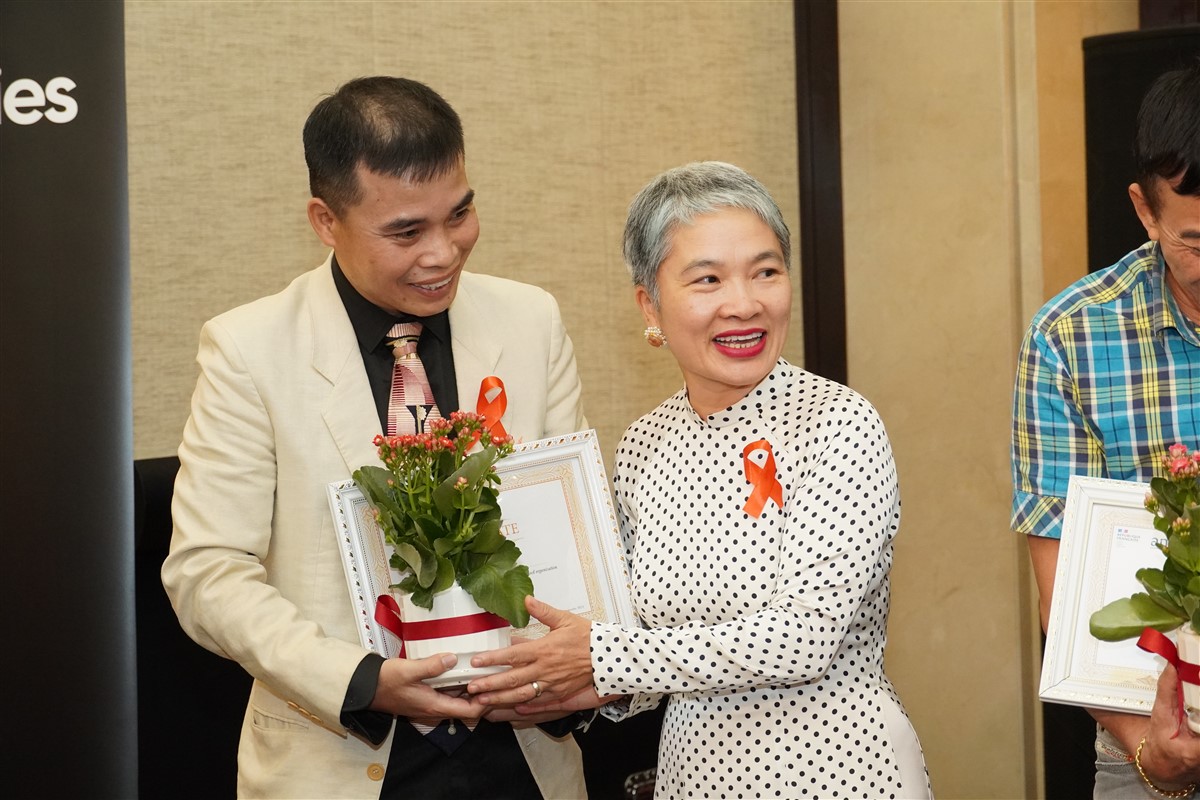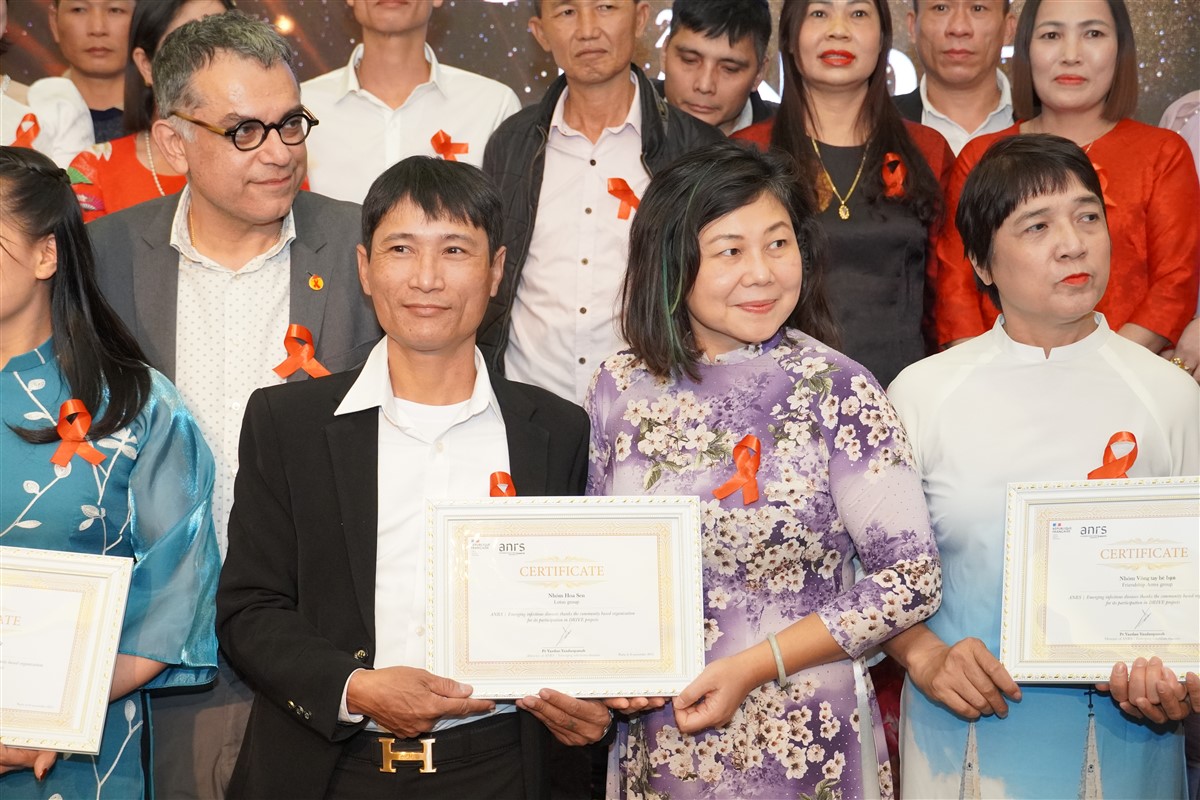In Gia Lai province, an average of 650 cases of various forms of tuberculosis (TB) are detected each year, with over 400 of them being pulmonary TB cases. Through proactive TB screening activities in Gia Lai, SCDI has identified many individuals showing unusual symptoms suggestive of TB. However, approximately one-third of these patients lack social health insurance cards for medical examinations and treatment.
During the 2021-2025 period, the whole country is striving to build a new rural landscape, and many communes in Gia Lai are no longer categorized as 'Zone 3' – exceptionally difficult communes. According to state policies, people from ethnic minorities in these areas are entitled to various support policies, one of which is the provision of Social Health Insurance. However, once these communes transition to 'Zone 2,' this policy is no longer applicable, resulting in gaps in health insurance coverage in the region.
Social Health Insurance is a crucial policy in Vietnam to increase access to health services and reduce catastrophic costs caused by diseased burdens, to achieve Universal Health Coverage (UHC). Community members' active participation plays a significant role in bridging the gap for those facing difficulties in accessing SHI services, helping to avoid the poverty trap caused by illness.

Image: Rơ Ô H’Hóp, leader of the CBO Ia Mlah in Ia Mlah commune, Krong Pa district, Gia Lai, conducting malaria awareness at a resident's home.
As an enthusiastic and dedicated member of the Community Malaria Action Team (CMAT) under SCDI since October 2019, Rơ Ô H’Hóp has long earned the trust and respect of the people in Ia Mlah commune, Krong Pa district, Gia Lai. She leads the Ia Mlah team consisting of 5 members, daily disseminating knowledge and information through outreach and assisting the residents.
Her hamlet falls within the "New Countryside" area, so since 2022, except for the elderly, poor households, and policy beneficiaries, the majority of the people here do not have Health Insurance Cards. The residents here have been accustomed to state-supported SHI for many years, so when it is no longer provided, many are unaware of this change. Some only realize this when seeking medical care. Moreover, most of them do not know what to do to purchase a social health insurance card and how to use it.
The residents here are mostly ethnic minorities, and many households face difficulties. They lack the funds to buy health insurance cards for themselves, let alone for their entire families. Some families have more than 5 members, but none have health insurance cards due to financial constraints, partly because they don't know who should have it. Some individuals cannot read, lack means of transportation, and have no one to turn to for assistance.
"People here still have the habit of only needing SHI when they are already sick, but when they do need it, it's too late," shared Hóp. "This is especially true for those who discover they have tuberculosis and need immediate hospitalization. The lack of a health insurance card causes delays in the treatment process without support."
“The role of Health Insurance is crucial, and its significance in tuberculosis treatment is even more vital."

Image: Ksor Lik, the head of Buôn Bluk, Phú Cần commune, Krong Pa district, Gia Lai, is actively supporting health insurance for the community.
Starting in October 2023, Ksor Lik, the head of Buôn Bluk in Phú Cần commune, Krong Pa district, Gia Lai, has been involved in communication and assisting people in accessing health insurance for medical treatment. Since 2022, 40% of communes in Krong Pa district have become new rural areas and no longer receive 100% support for health insurance cards, including Lik's commune. Lik and his team have become connectors, supporting the coverage of health insurance cards locally.
"Due to limited awareness campaigns, people don't fully understand the benefits of health insurance. Many people are capable of buying, but they are willing to spend more on personal medical expenses than the cost of health insurance for themselves for a year."
“Not only supporting health insurance cards but also guiding people to use them effectively is crucial."
Lik shares, "Some people already have health insurance cards, but when they go for a check-up, they discover errors in their names, making the cards unusable. Many people cannot read or pay attention to personal information on the cards. They firmly believe that having a health insurance card means they can receive free medical treatment". At that point, CMAT, like Lik, has to take them to the district Social Insurance office to correct the information on the health insurance card to match their ID cards before it can be used. Or some people do not check, allowing the health insurance card to expire. In such cases, during outreach sessions, Lik also provides information to avoid mistakes.
"Or some people do not fully understand health insurance cards. They think that using the health insurance card means they can receive free treatment and medication for all types of illnesses. When they seek treatment for illnesses not covered by health insurance, they wonder 'Why do I have to pay if I have health insurance?' This leads to a loss of trust in health insurance cards. "That is also something we focus on in our communication efforts."
"Especially for an urgent disease like tuberculosis, having health insurance is crucial. In Phú Cần commune, where Lik lives, the entire commune has over 5,600 residents, with 70% being ethnic minorities. The active screening conducted in October by SCDI and the district health center identified 13 people with suspected tuberculosis who were recommended for sputum testing using Gene-Xpert, and 27 people were tested for latent tuberculosis through Mantoux testing. Among those suspected of having tuberculosis, many did not have health insurance, meaning that if they were diagnosed with tuberculosis, they would have to purchase expensive medication. Given their tight financial situation, achieving comprehensive treatment for tuberculosis becomes extremely difficult, trapping patients in a cycle of poverty and illness.
"I persuade people to use health insurance because when they notice abnormal lungs, even if it's not tuberculosis, they still need healthcare. I also explain that health insurance covers 100% of tuberculosis treatment costs. Moreover, the drugs for tuberculosis treatment are challenging to find in external pharmacies. If not treated promptly, tuberculosis can affect their health and those around them. Providing people with complete information about tuberculosis is also a way to make them understand and participate in health insurance."
"If you don't have enough money to buy for a whole year, you can buy quarterly or half-yearly. For those who are extremely difficult, I will contact SCDI to seek assistance."
“CMAT is the bridge of connection”
People like Lik and Hóp are two individuals out of 20 CMAT members in the Central Highlands to participate in activities supporting access to health insurance for tuberculosis patients and those affected by tuberculosis. CMAT members play the role of screeners, learning and verifying information, and creating lists of tuberculosis patients for support. When distributing health insurance cards, they also coordinate with local social insurance policies and healthcare centers to distribute them to the people.
CMAT members are familiar with and understand the essential needs of residents, especially the gaps in accessing healthcare services. Therefore, it is the CMAT, not someone else, who demonstrates a prominent role in health insurance coverage: from detecting individuals with tuberculosis symptoms without health insurance, providing information about the importance and usage of health insurance cards, to connecting and finding resources to support those facing difficulties.
Through training sessions organized by SCDI, CMAT members understand the process of supporting someone without health insurance, enhance their knowledge, and are provided with tools for communication. Each time they reach someone with tuberculosis symptoms or in difficult circumstances, CMAT reports to SCDI officers and local authorities to find solutions to support patients. Over time, the capacity of CMAT has been increasingly enhanced.

Image: CMAT during a training session on the health examination process using health insurance cards
What stands out in the CMAT is their enthusiasm, dedication, and extensive experience in community support over many years of involvement in the malaria prevention community group. They are voices of trust, not only among the local residents but also with the government and healthcare facilities in the area.
Most CMAT members, alongside their community support roles, also have other personal responsibilities to maintain their livelihoods. However, they always find a way to fulfill their role as contributors to the community effectively and passionately. Rơ Ô H’Hóp is an example. During work sessions in the fields with others, she takes advantage of break times to communicate about tuberculosis, its importance, and the process of using health insurance. "I use every 10-15 minutes of break time to share information. During lunch breaks or while gathering, I discuss it casually, like daily conversations, nothing too complicated. I also create videos on Facebook and TikTok to guide people."

Image: Rơ Ô H’Hóp doing outreach in the fields.
"People praising me for being enthusiastic makes me happy, and it motivates me to do even more. Helping someone brings joy to my heart. I hope to have enough strength and health to support the community even more in the future."
Health insurance is a companion for tuberculosis patients during treatment. In the future, there needs to be a strengthened communication model to change people's perception of health insurance. Local authorities need to be more actively involved, with CMAT playing the role of a bridge, supporting individuals with tuberculosis and those affected by it to efficiently access and use health insurance for medical examinations and treatment, helping to break the cycle of poverty.

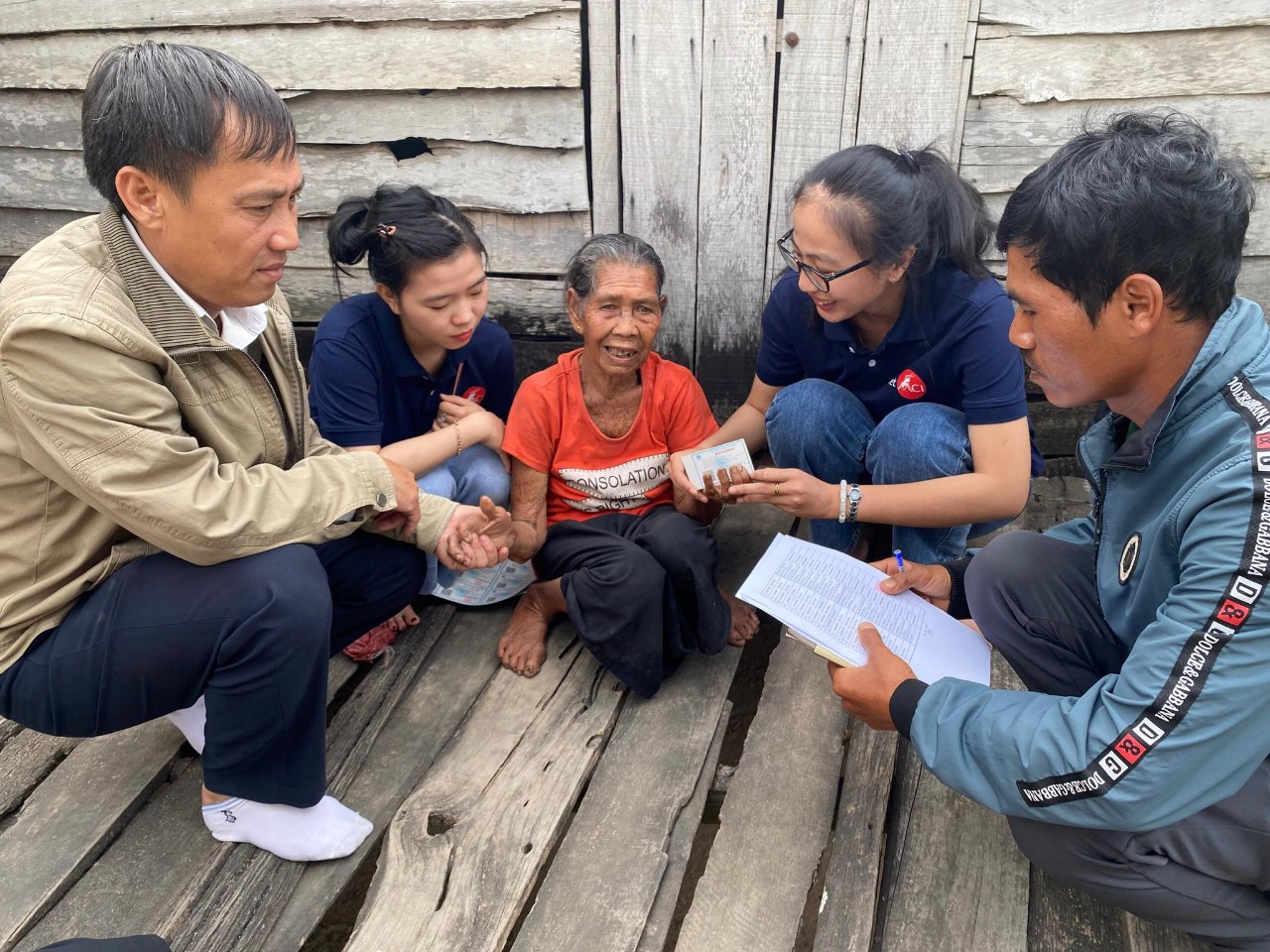
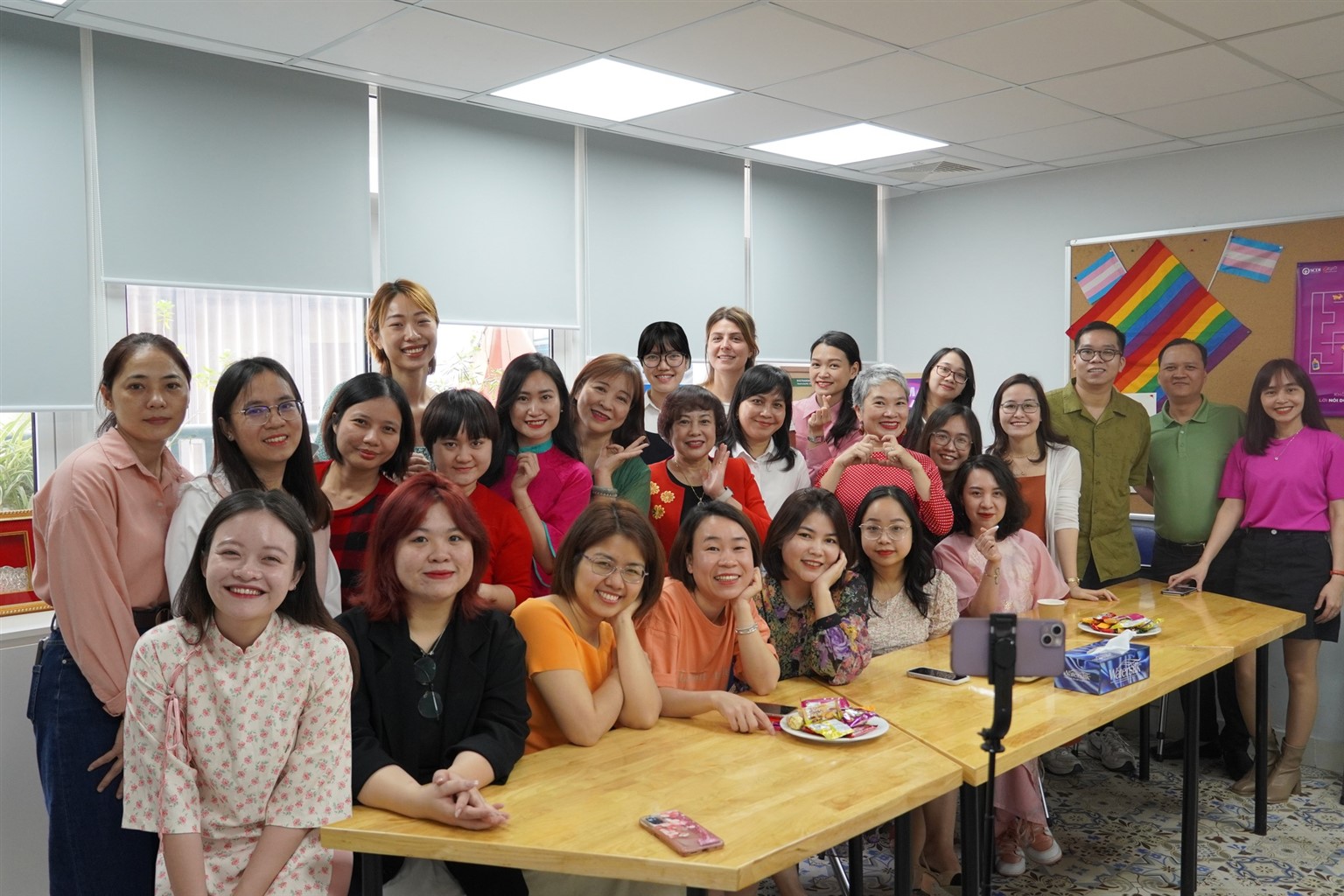
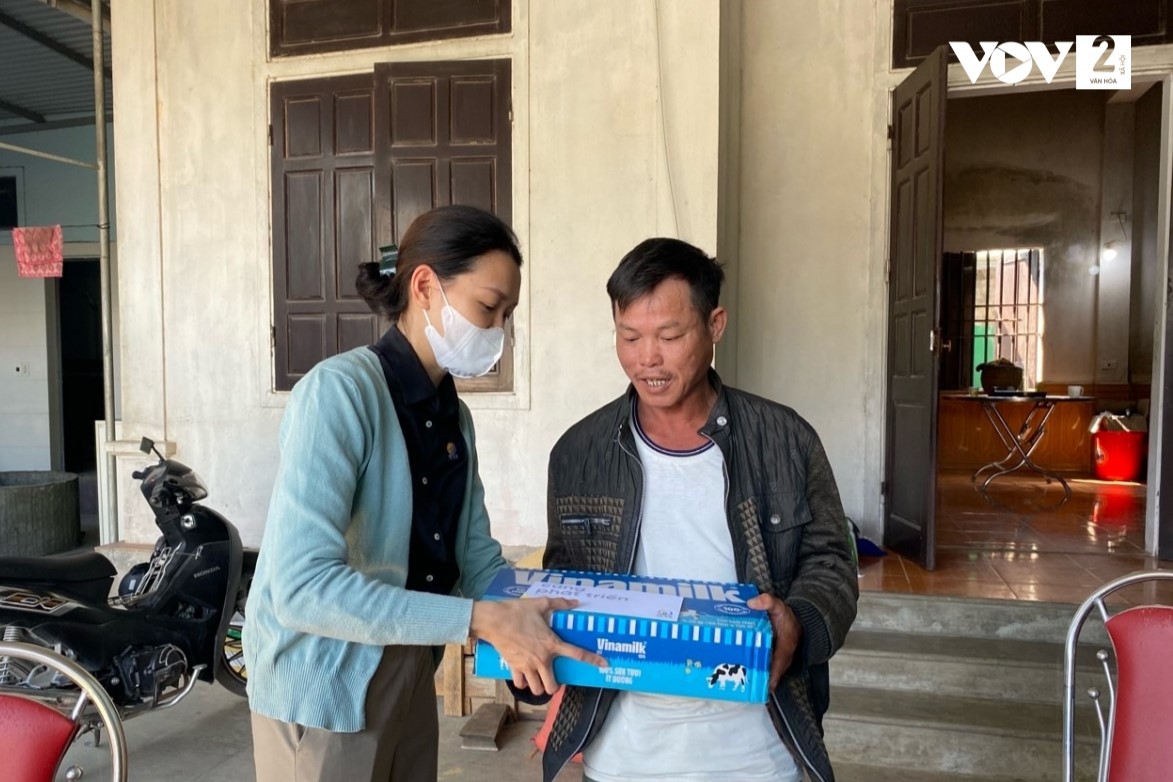
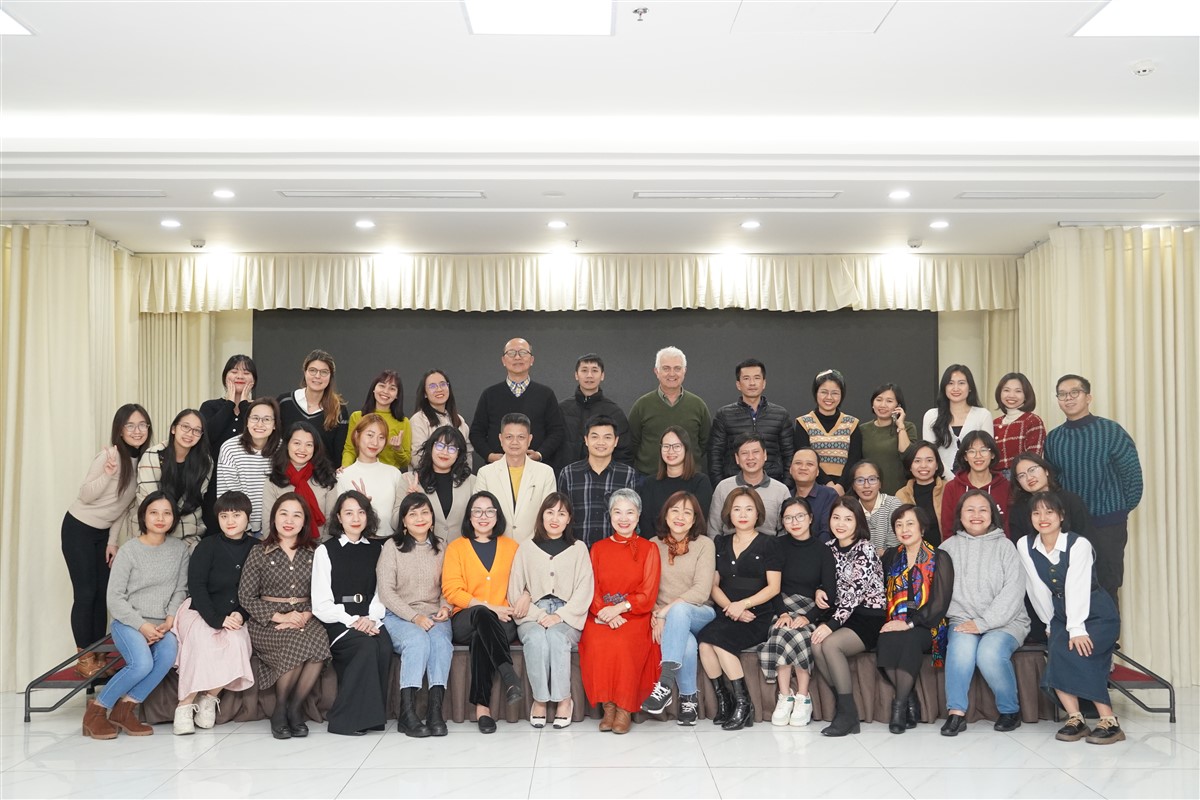
.jpg)
